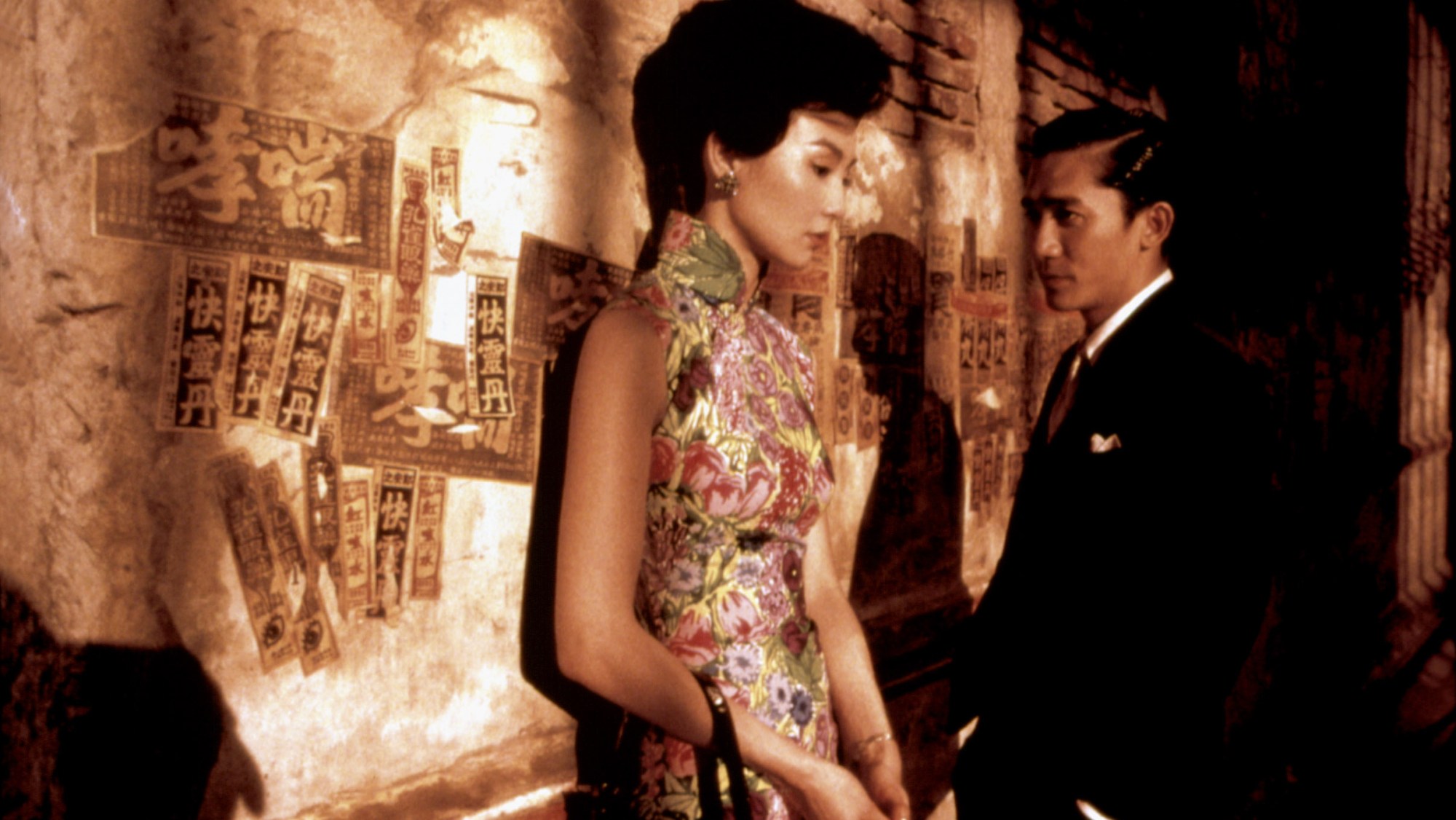World
Remembering ‘In the Mood for Love’: A Classic from AFM

At the American Film Market (AFM), many films come and go, but few leave a lasting impact like Wong Kar-wai’s In the Mood for Love. Lauded by critics, this cinematic masterpiece consistently ranks among the best films ever made. Released in 2000, it tells a poignant story set in the 1960s Hong Kong, though much of it was filmed in nearby Macau and Bangkok.
In the Mood for Love stars Tony Leung as Mr. Chow and Maggie Cheung as Mrs. Chan. The two characters, living in a cramped apartment building, discover that their spouses are engaged in an affair. As they grapple with this painful reality, they develop a deep yet complicated bond. Their relationship unfolds against a backdrop that reflects Wong’s childhood experiences in Hong Kong, a city he and his family moved to after emigrating from Shanghai.
Creative Inspirations and Film Production
Wong drew heavily from his early life, recalling the lack of privacy in shared living spaces. “We shared flats with strangers,” he noted in an interview with the British Film Institute. “There was no such thing as privacy; your life was an open book that everyone read over your shoulder.” This intimate perspective shapes the emotional landscape of the film, resonating with audiences around the world.
The production, which had a budget of $16 million, was a collaboration between Wong’s own Block 2 Pictures and France’s Paradis Films. Fortissimo Films acquired the worldwide distribution rights, while USA Films secured the U.S. distribution, paving the way for its international release.
Wong faced a tight deadline to complete the film in time for its premiere at the 53rd Cannes Film Festival in May 2000. The film made a significant impact, with Leung winning the Best Actor award, further solidifying the film’s status as a classic. Ultimately, In the Mood for Love grossed over $16 million worldwide, showcasing Wong’s unique storytelling and visual style.
Cultural Legacy and Impact
The film’s influence extends beyond its box office success. It has been celebrated for its exquisite cinematography, meticulous attention to detail, and the intricate emotional performances of its leads. Wong Kar-wai’s work has earned him a reputation as one of cinema’s most celebrated directors, particularly known for his ability to evoke sensuality and longing.
Today, In the Mood for Love remains a touchstone in film history, often referenced in discussions about cinematic artistry and storytelling. Its themes of love, loss, and the complexities of human relationships continue to resonate with audiences, making it a timeless piece of art that transcends its original release.
As the film industry evolves, the legacy of In the Mood for Love serves as a reminder of the power of storytelling and the lasting impact of well-crafted cinema. Wong Kar-wai’s vision not only shaped a generation of filmmakers but also left an indelible mark on the hearts of audiences around the globe.
-

 Science1 month ago
Science1 month agoIROS 2025 to Showcase Cutting-Edge Robotics Innovations in China
-

 Lifestyle1 month ago
Lifestyle1 month agoStone Island’s Logo Worn by Extremists Sparks Brand Dilemma
-

 Science2 weeks ago
Science2 weeks agoUniversity of Hawaiʻi at Mānoa Joins $25.6M AI Initiative for Disaster Monitoring
-

 Health1 month ago
Health1 month agoStartup Liberate Bio Secures $31 Million for Next-Gen Therapies
-

 World1 month ago
World1 month agoBravo Company Veterans Honored with Bronze Medals After 56 Years
-

 Politics4 weeks ago
Politics4 weeks agoJudge Considers Dismissal of Chelsea Housing Case Citing AI Flaws
-

 Lifestyle1 month ago
Lifestyle1 month agoMary Morgan Jackson Crowned Little Miss National Peanut Festival 2025
-

 Health1 month ago
Health1 month agoTop Hyaluronic Acid Serums for Radiant Skin in 2025
-

 Science1 month ago
Science1 month agoArizona State University Transforms Programming Education Approach
-

 Sports1 month ago
Sports1 month agoYamamoto’s Mastery Leads Dodgers to 5-1 Victory in NLCS Game 2
-

 Top Stories1 month ago
Top Stories1 month agoIndonesia Suspends 27,000 Bank Accounts in Online Gambling Crackdown
-

 Business1 month ago
Business1 month agoTruist Financial Increases Stake in Global X Variable Rate ETF









